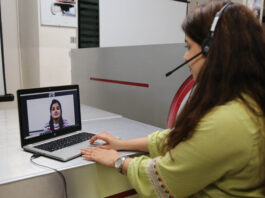The unprecedented origin and proliferation of COVID-19 have dictated us to explore the existent yet looked down upon online classes/education and work from home. For the initial days of the spread of the deadly virus, schools, colleges, and companies were closed down as people moved inside their compounds. While this proved to be an effective method to pull down the rate of spread of the infection, life in lockdown couldn’t continue for long.
The initial Days
As most of the students had the luxury to stay inside their homes, sections of the working professionals had to resume their work-life like before, of course, with added safety precautions. For the majority of the students and employees, thanks to technology, studies and work continued online, respectively. Life continued as it was from the comfort of their homes.

Moving classes and work tables online had many pros, like flexible working hours, more time with family, zero commuting costs, and a cozy environment. As for the drawbacks, boredom, reduced efficiency, and rapture in the work-life balance are the most notable ones.
Since online classes and work from home are now a new normal, what will the trend be after the virus loses its control over the human body in the future? Will things change, or should we accept being online for 6-8 hours a day as a part of our lives?
What do Employees Want?
From the perspective of general working personals in India who have the luxury to work from home, according to The Economic Times, around 66% prefer work from home. A fresh set of 70% people believe that they are more satisfied with work from home than spending hours in designated cabin space. If given a chance, 80% of the current workforce will take up a job with work from home option, rather than the conventional ones.
The stats scream out a single line: Employees love to work from home.

Even several firms, owning to their reduced operating costs, lesser required space, and lesser expenditure to provide amenities, are promoting work from home. As per reports of Global Workplace Analytics, 25-30% of the employees will be working from home by the end of 2021. Facts such as TCS planning to move 75% of their workforce online by 2025 strongly supports the estimate.
In conclusion, while work from home will not overpower work on-site in the future, it will not be a thing to listen to and wonder how it works.
The Case of Students
Let’s discuss our case now. As soon as reports about the expansion of the number of cases poured in, swift actions came into effect. Colleges were shut, and students were advised to pack up and leave for their homes. The year was 2020, and since then, we, especially the engineering students, have converted the walk to our classrooms to a press of the trackpad.

While some students, notably the medicos, had the opportunity to enter their campus once again after the first wave, not us. All thanks to the second wave, our turn keeps on getting postponed. I got a medical friend of mine, who keeps teasing me that I will receive my degree online, which triggers me off, and every time she visits her campus, I envy her.
Moral of the story: while some are enjoying their time at home, the lion’s share of us desperately want to get back to the campus.
Once COVID settles down, things will not change much for us. The sprawling campus of LPU will again buzz with the laughter of the students. The classrooms will see knowledge being showered upon on the students, and the massive hostels will witness the creation of memories that students will cherish throughout their lives.
However, distance education will get some more light as more and more students will opt for courses in universities situated thousands of miles away. And frankly, it will be a massive improvement in comparison to the numbers in the pre-COVID world.




